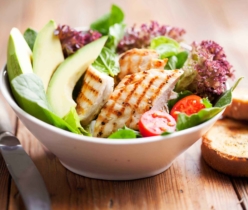Alcohol does interfere with muscle building, among other things.
Any vodka in there?
Alcohol has a pretty dramatic, quick-acting, and oftentimes detrimental effect on our bodies. We wouldn’t drink it if it didn’t affect us in a certain way, don’t you agree? The intoxicated feeling makes us forget our worries and loosen up. But how does that happen and how does it interfere with muscle building?
How do we get drunk?
The substance that makes you intoxicated in alcoholic drinks is called ethanol. Ethanol is a depressant. That doesn’t mean you get sad or depressed while you drink it, perhaps quite the opposite. Depressants decrease your brain’s reaction to stimuli.
That’s why people who drink are “slower” in general. Their cognitive reception of what is happening and what your body must do is slower and more subdued. In fact, this can lead to our brains not storing certain information or registering certain things. This is why alcohol is so popular with people who want to forget reality and loosen up.
How does this interfere with muscle building?
Well, our brain builds the body. It needs to order your organs and muscles to go about and do stuff. That includes distribution to the necessary ingredients for building muscle.
Just as your reaction to external stimuli is slowed down, so is your brain’s reaction towards building muscle. Bodybuilding will be slowed down with all bodily functions. A small beer may not decrease the speed of anything too much, but it will have an effect, however negligent it may be.
Other important factors to consider:
Intoxication – ethanol is something that your body doesn’t want in its system. It interferes with its correct functioning. Thus, your body will delay non-vital functions until you are cleared up, and that includes building muscles.
Hydration – you may know that drinking water reduces the intoxication. That happens through diluting the relative percent of alcohol in your blood stream. Ethanol has a big effect on your hydration because water and alcohol mix well, but still have different values, which affects blood flow. Thus, the transportation of the ingredients needed to build muscle is affected.
Calories – alcohol tends to have a lot of calories that may interfere with your diet, especially if you’re trying to lose fat. Combine it with the slowing down effect described above, and you have a good way to sabotage weight loss.
Alcohol is detrimental to muscle growth, development, and recovery
To build muscles you need to have a balanced protein synthesis, an essential process that basically allows muscle movement to take place. If you’re really aiming to build muscles, you’ll also need to give your body enough rest, as your muscles normally grow during this period. And even if you decide to have a nightcap, be aware that this will disrupt your sleep patterns. In fact, it will affect your sleep, daytime alertness, and certain physiological processes that occur during sleep. What happens here is that when you drink, your body loses a chemical called human growth hormone, or HGH. This hormone plays a fundamental role in building and repairing muscles, but alcohol will suppress the secretion of HGH by as much as 70 percent.
Alcohol dehydrates your body
This will lead to reduced performance. If you want your sore muscles to recover as fast as possible, you’ll need to stay away from alcoholic beverages. They are powerful diuretics, so they’ll quickly deplete all the water from your muscles, increasing the risk of having cramps, muscle strains and pulls.
Alcohol drains your energy
The ingestion of alcohol is processed at a fast speed by the liver and used as a source of energy for the body, which in turn will burn the energy from alcohol before any other energy sources because of alcohol’s toxicity to the body, and because your body cannot store alcohol. Then it will affect the water balance of your muscle cells. This will harm their ability to produce a small molecule called adenosine triphosphate (ATP), which supplies the energy needed to help your muscles contract. A reduction in your body’s ATP can result in a lack of energy and loss of endurance.
But not all is lost when it comes to drinking. Red wine is often considered a healthier alternative to other forms of alcohol due to the presence of anti-oxidants, that are known to increase “good” cholesterol which is important for a healthy heart.
The clues are in our genetics
There’s still a lot of research to be done on alcohol’s effect on your body, and its influence over coordination and performance, as well as mood and behavior. People differ greatly in their response to alcohol and in their desire for it.
One of the major players in alcohol’s absorption and alcohol’s effects is genetics. Our genes can show us our predisposition to alcohol and whether we have a low or high sensitivity to it. By knowing how genetically sensitive we are to alcohol and understanding how well our body breaks down alcohol, we can find out if how much drinking affects our fitness efforts.


